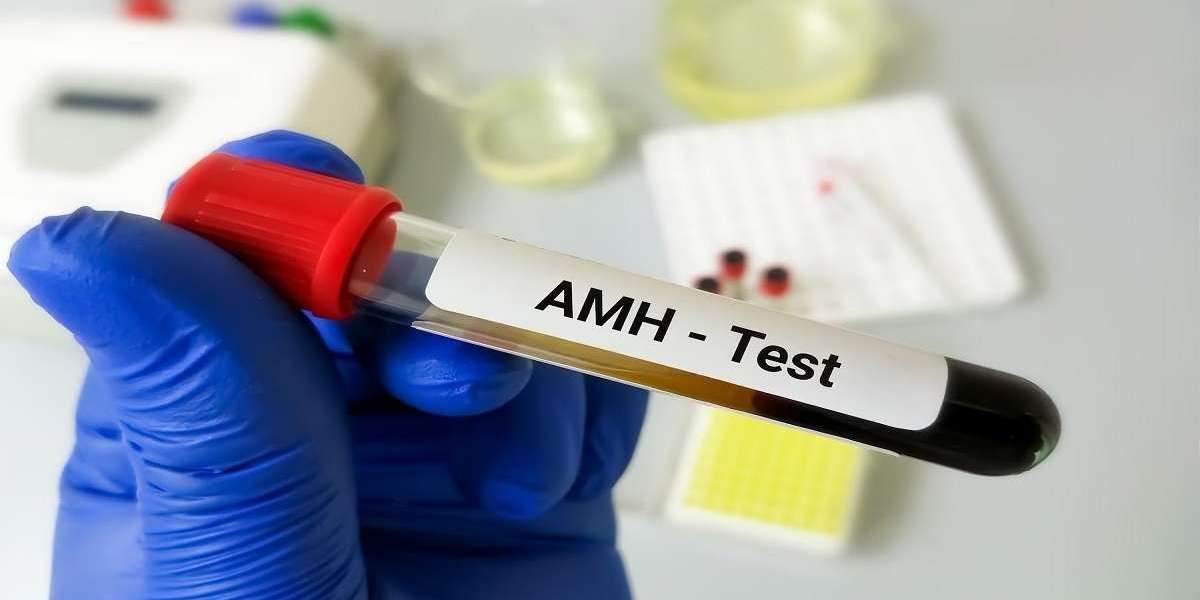In the realm of assisted reproductive technology (ART), the AMH test stands as a pivotal tool, offering insights into a woman's ovarian reserve and paving the way for tailored IVF strategies. Understanding the nuances of this test is essential for individuals embarking on the journey of fertility treatment. Let's delve deeper into the significance of the AMH test and how it influences Prime IVF planning.
AMH Test
What is AMH?
AMH, or Anti-Müllerian Hormone, is a substance produced by the ovarian follicles. It serves as a marker of ovarian reserve, reflecting the quantity of eggs remaining in a woman's ovaries.
Importance in IVF Planning
In the context of in vitro fertilization (IVF), knowledge about ovarian reserve is paramount. It helps fertility specialists tailor treatment protocols to maximize the chances of success.
Understanding AMH Levels
Normal Range
AMH levels typically decline with age but can vary widely among individuals. A normal range is established based on age and other factors.
Factors Affecting Levels
Various factors such as genetics, lifestyle, and certain medical conditions can influence AMH levels, highlighting the need for personalized assessment.
Role of AMH in IVF
Predicting Ovarian Reserve
AMH testing provides valuable information about a woman's ovarian reserve, allowing clinicians to predict how she may respond to ovarian stimulation during IVF.
Tailoring Treatment Plans
Armed with AMH data, fertility specialists can customize medication dosages and treatment timelines, optimizing the chances of a successful IVF cycle.
Who Should Consider AMH Testing?
Women with Fertility Concerns
AMH test is particularly beneficial for women facing fertility challenges or those planning to delay childbearing.
Planning for Fertility Preservation
Individuals considering egg freezing or other fertility preservation methods can benefit from AMH assessment to gauge their reproductive potential.
When to Get Tested
Age Considerations
While AMH levels naturally decline with age, testing can be performed at any reproductive stage to assess ovarian reserve.
Timing Within Menstrual Cycle
The AMH test can be conducted at any time during the menstrual cycle, offering flexibility in scheduling.
How the Test is Administered
Blood Sample Collection
AMH testing involves a simple blood draw, making it a convenient and minimally invasive procedure.
Laboratory Analysis
The blood sample is analyzed in a laboratory to measure the concentration of AMH present, providing quantitative data for assessment.
Interpreting Test Results
High AMH Levels
Elevated AMH levels may indicate a robust ovarian reserve, potentially leading to a higher response to ovarian stimulation.
Low AMH Levels
Conversely, low AMH levels may suggest diminished ovarian reserve, necessitating adjustments in treatment approach.
Implications for IVF Success
Impact on Treatment Outcomes
AMH levels can influence the likelihood of IVF success, guiding clinicians in optimizing treatment parameters for improved outcomes.
Adjustments in Protocols
Based on AMH results, fertility specialists may modify medication protocols or recommend alternative approaches to enhance efficacy.
Counseling and Support
Emotional Aspects of AMH Testing
AMH testing can evoke emotional responses, and individuals may benefit from counseling and support to navigate the implications of test results.
Guidance for Decision-Making
Access to comprehensive information and counseling empowers individuals to make informed decisions about their fertility journey.
Alternatives and Complementary Tests
Antral Follicle Count (AFC)
AFC assessment, often performed via ultrasound, provides complementary information about ovarian reserve and follicular activity.
Follicle-Stimulating Hormone (FSH) Levels
FSH levels, when combined with AMH testing, offer a comprehensive evaluation of ovarian function and response to fertility treatment.
Addressing Misconceptions
AMH as a Sole Predictor
While AMH is a valuable predictor of ovarian reserve, it is not the sole determinant of fertility potential and should be interpreted in conjunction with other factors.
Limitations of the Test
AMH testing has limitations, and its predictive value may vary in certain clinical scenarios, necessitating a holistic approach to fertility assessment.
Cost and Accessibility
Affordability Considerations
The cost of AMH testing may vary depending on factors such as location, healthcare provider, and insurance coverage.
Availability in Different Settings
AMH testing is widely available in fertility clinics and reproductive health centers, ensuring accessibility for individuals seeking evaluation.
Future Directions and Research
Advancements in AMH Testing
Ongoing research aims to refine AMH testing methods and expand its applications in fertility assessment and treatment planning.
Potential Innovations
Emerging technologies hold promise for enhancing the accuracy and predictive value of AMH testing, driving advancements in reproductive medicine.
In the realm of IVF planning, the AMH test emerges as a cornerstone, offering valuable insights into ovarian reserve and guiding personalized treatment strategies. By understanding the significance of AMH testing and its implications for fertility outcomes, individuals can embark on their reproductive journey with confidence and empowerment.



